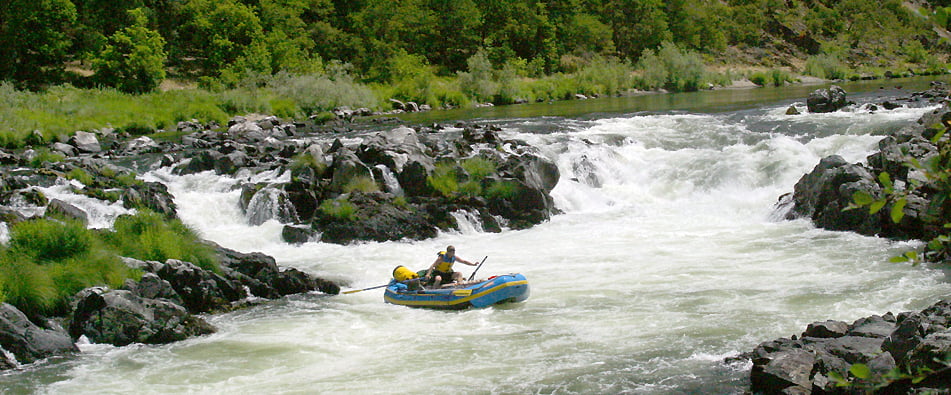WASHINGTON (CN) – Sixty-three miles of Oregon’s Rogue River cannot be designated a Wild and Scenic River because it’s been extensively modified by ranchers and miners, cattlemen claim in suing the Department of the Interior.
The designated section runs through Grants Pass and smaller cities in Southern Oregon, whose established municipal and agricultural uses take precedence over the designation, the Double R Ranch Trust, the Oregon Cattlemen’s Association and the Oregon Concrete and Aggregate Producers Association say in their March 10 federal lawsuit.
Were the segment designated Wild and Scenic, the cities would no longer be allowed to discharge treated wastewater, use river water for irrigation, maintain boat ramps or build new bridges, the groups say.
Not only is designation illegal under the Wild and Scenic Rivers Act, it would prohibit some protections for the river, according to the complaint. For instance, after a New Year’s Day storm in 1997, the river raged outside its banks and enveloped a gravel pit pond left by excavation from the Oregon Department of Transportation.
As a result, 95,000 tons of sediment flowed into the river for six years year until environmentalists, government entities and mining companies stopped the breach.
Designation would “almost certainly” prevent projects to prevent such events, “severely degrading downstream fish habitat and frustrating the very purposes and policies the Act was created to protect,” the complaint states.
Historically, that section of the river has taken different paths over the flat land, creating an alluvial plain has deposited the rich sediment that made the area attractive farm and grazing land and lured gravel miners.
Over the years, the plaintiffs say, projects to stabilize the river banks and prevent contamination from mining pits transformed the river so that it was no longer “free flowing,” as defined under the Wild and Scenic Rivers Act.
Without free-flowing status, the river cannot be designated as Wild and Scenic, the groups say in the lawsuit against the Bureau of Land Management and the Secretary of the Interior.
Double R Ranch owns 1,000 acres surrounding 5 miles of the section at issue. The river there is so “volatile and torrential,” the ranch says, that it had to undertake a major project to stabilize the banks to avoid losing farm and range land to erosion.
The required a permit that the Army Corps of Engineers would no longer be able to issue if the river were designated, the ranch says. Designation would prohibit such activity within a quarter of a mile on each side of the river.
Designation would also stop the ranch from using its water rights to get water from new places on the river, according to the complaint.
The Oregon Cattlemen’s Association said the designation would harm its members and stop it from fulfilling its mission: to improve and strengthen the livestock industry and protect the communities and private property rights of Oregon livestock producers.
The Oregon Concrete and Aggregate Producers Association joined to challenge the restricted mining such a designation would cause.
The plaintiffs seek a declaration that the section of river is ineligible for listing under the act.
They are represented by Diane Meyers with Miller Nash in Seattle, who did not return a phone call requesting comment. The BLM does not comment on pending litigation.
Subscribe to Closing Arguments
Sign up for new weekly newsletter Closing Arguments to get the latest about ongoing trials, major litigation and hot cases and rulings in courthouses around the U.S. and the world.









